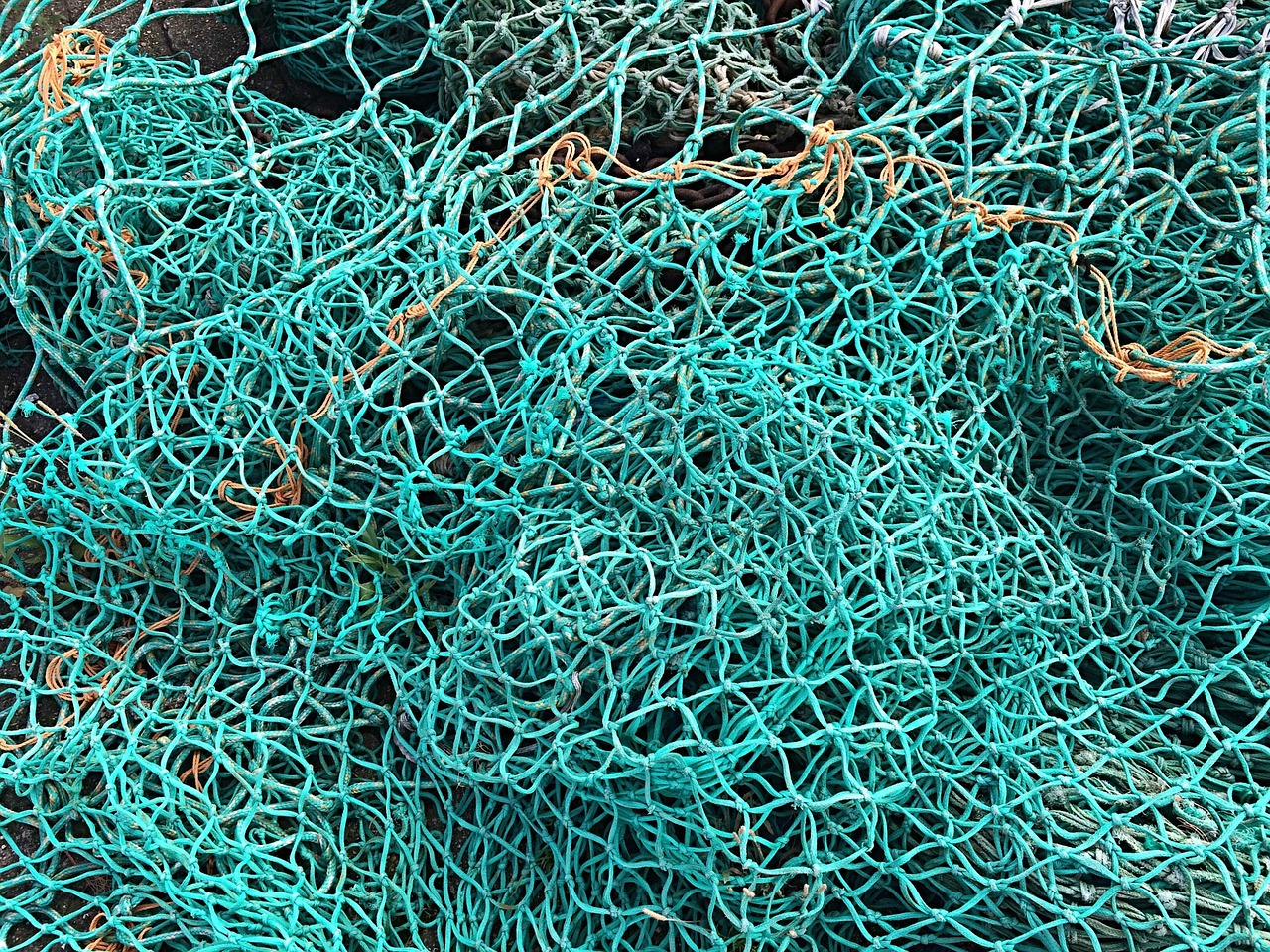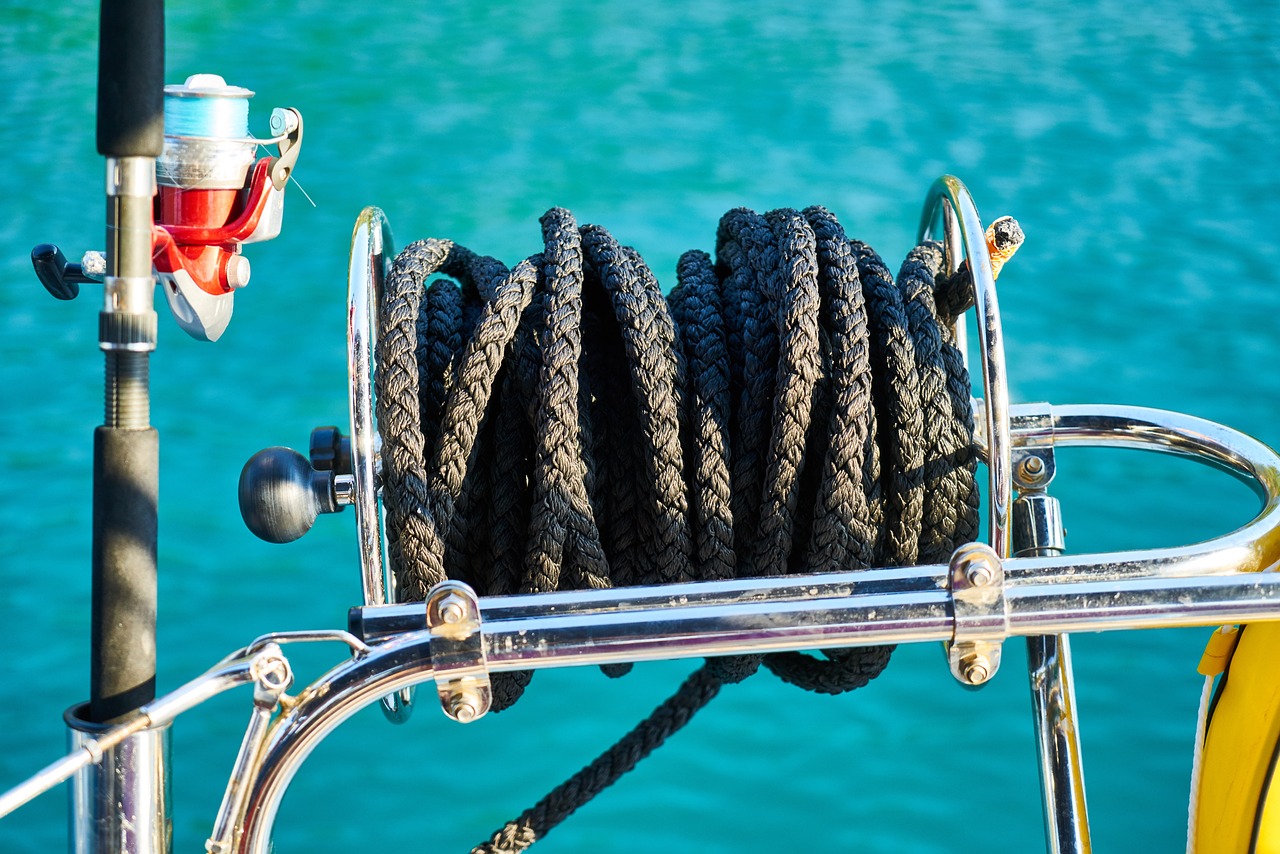The Importance of Sustainable Fisheries
Sustainable fisheries play a crucial role in maintaining the delicate balance of marine ecosystems, supporting the livelihoods of millions of people, and ensuring a stable food supply for present and future generations. By implementing responsible fishing practices, we can protect the oceans' biodiversity, prevent overfishing, and safeguard the health of our marine environments for years to come.
One of the key benefits of sustainable fisheries is the preservation of marine ecosystems. By adopting sustainable fishing methods, we can protect various species of fish, marine mammals, and other sea creatures, ultimately contributing to the overall health and resilience of our oceans. This approach helps in maintaining the delicate balance within marine food chains and ecosystems, preventing disruptions that could have far-reaching consequences.
Moreover, sustainable fisheries offer significant economic advantages. By promoting sustainable practices, we can create job opportunities in the fishing industry, ensure stable markets for seafood products, and establish a foundation for long-term profitability for fishing communities. This not only supports local economies but also contributes to the overall economic stability of regions dependent on fishing activities.
When it comes to global food security, sustainable fisheries are paramount. Responsible fishing practices ensure that fish stocks are managed effectively, meeting the nutritional needs of a growing global population. By prioritizing sustainability, we can address food security challenges and help secure the availability of seafood as a vital protein source for millions of people worldwide.
Regulatory frameworks play a crucial role in promoting sustainable fisheries management. Government regulations, international agreements, and certification programs are essential in combating illegal fishing activities, promoting sustainable practices, and ensuring the long-term viability of fish stocks. These frameworks provide a foundation for effective fisheries management and conservation efforts on a global scale.
Community engagement is another key aspect of sustainable fisheries. Involving local communities, indigenous groups, and stakeholders in decision-making processes helps ensure that fishing practices are sustainable and aligned with the needs of various groups. By fostering collaboration and inclusivity, we can work towards the common goal of preserving marine resources for future generations.
Innovation in fishing technology is driving positive change in the industry. By adopting innovative technologies and practices, we can reduce bycatch, minimize environmental impact, and improve resource efficiency in fishing operations. These advancements not only promote sustainability but also pave the way for a more environmentally friendly and efficient fishing sector.
Sustainable fisheries also contribute to building resilience against the impacts of climate change. By maintaining healthy fish populations and marine ecosystems, we can enhance the ability of coastal communities to withstand the challenges posed by climate change. Sustainable fishing practices play a vital role in ensuring the long-term sustainability of marine resources in the face of environmental changes.
Educational outreach and awareness are essential components of promoting sustainable fishing practices. By educating the public, implementing outreach programs, and raising awareness about the importance of conservation, we can encourage responsible consumption of seafood and support efforts to protect marine environments. Public engagement is key to fostering a culture of sustainability and conservation in the fishing industry.

Preservation of Marine Ecosystems
Exploring the vital role of sustainable fisheries in maintaining marine ecosystems, supporting livelihoods, and ensuring a stable food supply for future generations.
When it comes to the preservation of marine ecosystems, sustainable fishing practices play a crucial role. By implementing methods that prioritize the health of the ocean and its inhabitants, we can protect marine biodiversity and prevent the devastating effects of overfishing. Imagine a delicate ecosystem like a finely tuned orchestra; each species playing a unique role in maintaining harmony. When one instrument is out of tune or missing, the entire symphony suffers. Sustainable fishing acts as the conductor, ensuring that each player performs in sync, creating a beautiful and resilient composition.

Economic Benefits
Exploring the vital role of sustainable fisheries in maintaining marine ecosystems, supporting livelihoods, and ensuring a stable food supply for future generations.
Highlighting the economic advantages of sustainable fisheries, including job creation, stable markets, and long-term profitability for fishing communities.
When it comes to sustainable fisheries, the benefits extend far beyond just environmental conservation. One of the significant advantages is the boost it provides to the economy. By implementing sustainable fishing practices, not only are we safeguarding marine resources for the future, but we are also creating opportunities for job growth within fishing communities. These practices ensure that fish stocks remain healthy and abundant, leading to stable markets and long-term profitability for those involved in the industry.
Imagine a scenario where overfishing depletes fish populations to the point of collapse, resulting in economic turmoil for fishing communities that rely on these resources for their livelihoods. In contrast, sustainable fisheries offer a more secure and sustainable economic future, where fishermen can continue to thrive while preserving the delicate balance of marine ecosystems.
Moreover, the economic benefits of sustainable fisheries go beyond immediate gains. By maintaining healthy fish stocks and ecosystems, we are investing in the long-term viability of the fishing industry. This not only ensures a stable income for current generations but also secures a prosperous future for upcoming ones, creating a legacy of economic stability and sustainability.
1. What are the primary economic benefits of sustainable fisheries?
2. How do sustainable fishing practices contribute to job creation?
3. What role do stable markets play in the profitability of fishing communities?

Global Food Security
Global food security is a critical issue that directly relates to the sustainability of fisheries worldwide. By implementing sustainable fishing practices, we can ensure a stable food supply for current and future generations. The link between sustainable fisheries and global food security is undeniable, as responsible fishing methods play a key role in meeting the nutritional needs of a growing population.
One of the primary benefits of sustainable fisheries in terms of global food security is the preservation of fish stocks. By avoiding overfishing and implementing effective management strategies, we can prevent the depletion of fish populations and ensure their long-term viability as a food source. This not only safeguards the availability of seafood for consumption but also helps maintain the balance of marine ecosystems.
Furthermore, sustainable fisheries contribute to food security by promoting food diversity. By supporting a variety of fish species through responsible fishing practices, we can enhance the resilience of food systems and reduce reliance on a limited number of food sources. This diversity not only enriches diets but also provides nutritional security by offering a range of essential nutrients.
In addition to directly impacting food supply, sustainable fisheries also play a role in supporting food security indirectly. By maintaining the health of marine ecosystems, these practices help sustain the productivity of fisheries and ensure the continuity of seafood production. This, in turn, contributes to the stability of food markets and reduces the risk of food shortages or price fluctuations.
Moreover, the promotion of sustainable fisheries aligns with broader efforts to address food security challenges such as climate change and environmental degradation. By adopting responsible fishing practices that minimize environmental impact and promote ecosystem resilience, we can safeguard the availability of seafood in the face of changing environmental conditions and ensure food security for vulnerable communities.

Regulatory Frameworks
Regulatory frameworks play a crucial role in ensuring the sustainability of fisheries and combating illegal fishing practices. These frameworks consist of government regulations, international agreements, and certification programs that aim to promote responsible fishing practices and protect marine resources. By establishing guidelines for fishing activities, setting catch limits, and monitoring compliance, regulatory bodies help prevent overfishing and ensure the long-term health of fish populations and marine ecosystems.

Community Engagement
Community engagement plays a crucial role in ensuring the sustainability of fisheries and marine resources. By involving local communities, indigenous groups, and stakeholders in decision-making processes, we can promote responsible fishing practices and protect the delicate balance of marine ecosystems. Through collaboration and active participation, communities can contribute valuable knowledge about local marine environments, traditional fishing practices, and conservation efforts.
Engaging with communities also fosters a sense of ownership and responsibility towards the marine resources they depend on for their livelihoods. This involvement can lead to the development of community-led initiatives for sustainable fishing, marine conservation projects, and the establishment of marine protected areas. By empowering communities to take an active role in managing their fisheries, we can enhance the resilience of marine ecosystems and ensure the long-term viability of fish stocks.
Furthermore, community engagement promotes social cohesion, cultural preservation, and economic development in fishing-dependent regions. By supporting local initiatives and sustainable fishing practices, we can create opportunities for economic growth, job creation, and improved livelihoods within coastal communities. This collaborative approach not only benefits the environment but also strengthens the social fabric of these communities, fostering a sense of pride and stewardship towards their marine resources.
In summary, community engagement is essential for promoting sustainable fisheries management, conserving marine biodiversity, and safeguarding the well-being of coastal communities. By working together with local stakeholders, we can ensure that fisheries are managed responsibly, resources are utilized efficiently, and future generations can continue to benefit from the abundance of the oceans.

Innovation in Fishing Technology
In the realm of sustainable fisheries, innovation in fishing technology plays a pivotal role in revolutionizing the way we interact with marine ecosystems. These advancements are not merely about catching more fish but ensuring the long-term health and balance of oceanic environments. One such innovation is the development of GPS tracking systems that enable fishermen to precisely locate fishing grounds, reducing unnecessary fuel consumption and minimizing the impact on sensitive habitats. Additionally, the implementation of biodegradable gear materials has gained traction, significantly decreasing marine debris and the unintended capture of non-target species.
Furthermore, the advent of remote monitoring technologies has allowed for real-time data collection on fishing activities, enabling authorities to enforce regulations effectively and combat illegal fishing practices. By utilizing eco-friendly fishing gear designs such as turtle excluder devices and seabird deterrents, the industry is actively working towards reducing bycatch and safeguarding vulnerable species. These technological innovations not only enhance the efficiency of fishing operations but also contribute to the conservation of marine biodiversity.
Moreover, the integration of blockchain technology in the seafood supply chain has brought transparency and traceability to the forefront, allowing consumers to make informed choices about sustainably sourced seafood. Through smart aquaculture systems that monitor water quality and optimize feed management, aquaculture practices are becoming more environmentally friendly and resource-efficient. The synergy between technological advancements and sustainable fishing practices is paving the way for a more resilient and responsible seafood industry.

Climate Change Resilience
Exploring the vital role of sustainable fisheries in maintaining marine ecosystems, supporting livelihoods, and ensuring a stable food supply for future generations.
Climate change poses significant challenges to marine ecosystems, impacting fish populations and coastal communities. Sustainable fisheries play a crucial role in building resilience against these threats. By implementing practices that adapt to changing environmental conditions, such as shifting migration patterns and ocean temperatures, fisheries can better withstand the effects of climate change.
Furthermore, sustainable fishing methods contribute to the overall health and stability of marine ecosystems, making them more resilient to the pressures exerted by climate change. By maintaining balanced fish populations and reducing stress on marine habitats, sustainable fisheries help ecosystems better cope with the disruptions caused by global warming.
Additionally, promoting sustainable fisheries can enhance the adaptive capacity of coastal communities facing climate-related challenges. By ensuring the availability of fish stocks through responsible management, communities can maintain a vital food source even as environmental conditions shift. This resilience is essential for the long-term sustainability of both fisheries and the livelihoods that depend on them.
Incorporating climate change considerations into fisheries management practices is crucial for safeguarding the future of marine resources and the communities that rely on them. By fostering resilience through sustainable fishing methods, we can mitigate the impacts of climate change on oceans and secure a more sustainable future for all.

Educational Outreach and Awareness
When it comes to sustainable fisheries, play a crucial role in promoting responsible fishing practices and fostering a culture of conservation. Through targeted educational programs and public awareness campaigns, stakeholders can be informed about the importance of sustainable fishing and the impact of their choices on marine ecosystems.
One effective approach is to engage with schools, community groups, and the general public through educational workshops and interactive demonstrations. By providing hands-on experiences and sharing knowledge about marine conservation, individuals can develop a deeper understanding of the challenges facing our oceans and the role they can play in preserving marine resources for future generations.
Collaboration between government agencies, non-profit organizations, and the fishing industry is essential in creating comprehensive educational initiatives that reach a wide audience. By working together, these stakeholders can develop educational materials, training programs, and outreach events that raise awareness about sustainable fishing practices and the need for responsible seafood consumption.
Furthermore, public campaigns that highlight the benefits of sustainable fisheries and the consequences of overfishing can help shift consumer behavior towards more environmentally friendly choices. By promoting certified sustainable seafood options and encouraging consumers to make informed decisions, these campaigns can drive demand for responsibly sourced fish products and support the growth of sustainable fishing practices.
Overall, are essential components of sustainable fisheries management, as they empower individuals to make informed choices that contribute to the long-term health of marine ecosystems and the well-being of fishing communities around the world.
Frequently Asked Questions
- What is sustainable fishing?
Sustainable fishing refers to the practice of catching fish in a way that ensures the long-term health and viability of the fish population, as well as the marine ecosystem. It involves techniques that minimize environmental impact, prevent overfishing, and promote the responsible management of marine resources.
- How does sustainable fishing benefit marine ecosystems?
Sustainable fishing helps preserve marine ecosystems by maintaining biodiversity, preventing the depletion of fish stocks, and reducing habitat destruction. By adopting sustainable practices, we can protect the delicate balance of marine life and ensure the health of our oceans for future generations.
- What role do regulations play in sustainable fisheries management?
Regulations play a crucial role in promoting sustainable fisheries by setting limits on catch quotas, enforcing fishing gear restrictions, and establishing protected areas. These measures help prevent overfishing, illegal fishing activities, and ensure the long-term sustainability of fish populations.
- How can individuals support sustainable fishing?
Individuals can support sustainable fishing practices by choosing seafood from certified sustainable sources, advocating for responsible fishing policies, and reducing seafood waste. By making informed choices and raising awareness about the importance of sustainable fishing, we can contribute to the conservation of marine resources.



















